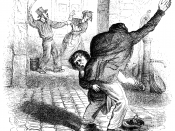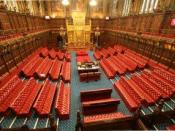The Bible says in Ezra 7, 11: "Now this is the copy of the decree which King Artaxerxes gave to Ezra the priest, the scribe, learned in the words of the commandments of the LORD and His statutes to Israel". The scribed, have always been important figures in a state knowing the law and possessing power by explaining to man what God meant in his words.
As first year law students learn Common Law finds its sources amongst others in cases and statutes. So by the very definition of law, cases are part of law. As judges are the originators of cases they do in fact contribute to the law. Thus the question whether judges are law makers seems to be ubiquitous in the light that they contribute to the existence of a very source of law. The question though arises from where do they derive their wisdom. The question has to be limited to analyse the thin line between interpretation of statutes and the creation of law.
This rather abstract question, which finds many points of intersection with the discipline of government or public law, may well be dealt with by illustrating a variety of cases.
In the 1970s Parliament passed the Domestic Violence and Matrimonial Proceedings Act (1976). Section 1 empowered judges to make various protective orders one of which had the effect of "excluding the other party from the matrimonial home" [s.1(1)(c)]. The courts however decided in B.v.B and in Cantliff v. Jenkins that the Act did not empower County Court judges to override any property rights in the home. No exclusion order could be made against a man (or a woman) with a proprietary interest in the home, no matter how violent he (or she) was. This interpretation of s.1(1)(c) seriously undermined the Act. This...


